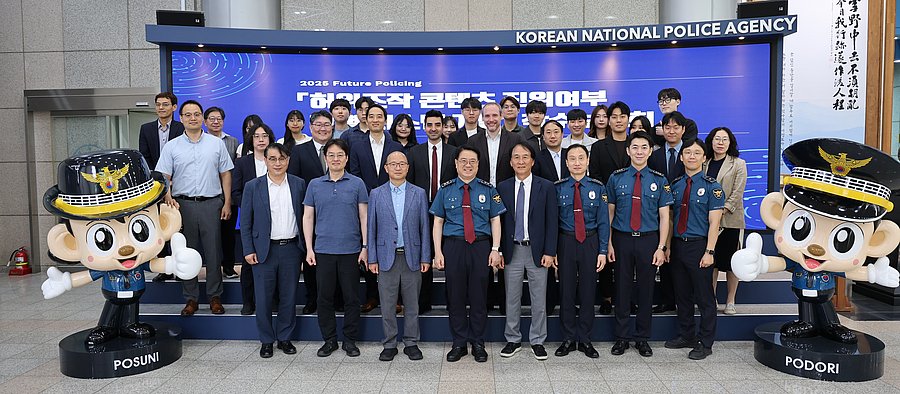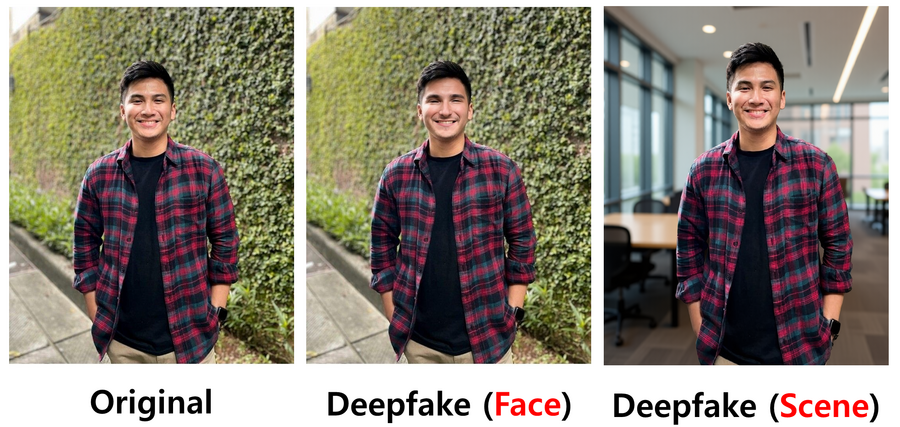Defacto

Auftakt des Defacto Projektes beim Korean National Police Agency in Seoul
Defacto: Development of a Falsely Manipulated Content Authenticity System
The rapid development of generative AI makes it possible to create deceptively realistic manipulations, such as deepfakes. These pose significant risks of disinformation, fraud, and cybercrime. Current detection methods, which are also AI-based, struggle to keep pace with these developments. A central problem in researching and developing detection methods is the insufficient data basis for training models. Existing datasets are often too small, outdated, or not diverse enough.
The “Defacto” project aims to address this issue by developing a multimodal, high-quality deepfake dataset. It will include image, text, and speech manipulations, as well as combinations thereof. The dataset considers various contexts, such as social media and fake news, as well as different emotions and accents, to reflect real-life scenarios. Additionally, a generation pipeline is being developed to continuously update the dataset with the latest deepfake techniques. Thus, the project creates a central benchmark for significantly improving the robustness and effectiveness of modern detection methods.
The project is being carried out in collaboration with partner universities in South Korea and Georg August University of Göttingen. The TMDT focuses on generating image and video data. After analyzing the currently available data sets, authentic image and video material is collected and systematically manipulated and improved using state-of-the-art deep learning approaches, including generative adversarial networks (GANs) and diffusion models. The resulting dataset serves as a basis for the project partners to research and test new detection models.
Here is an example of image manipulation using face swapping or background alteration.

